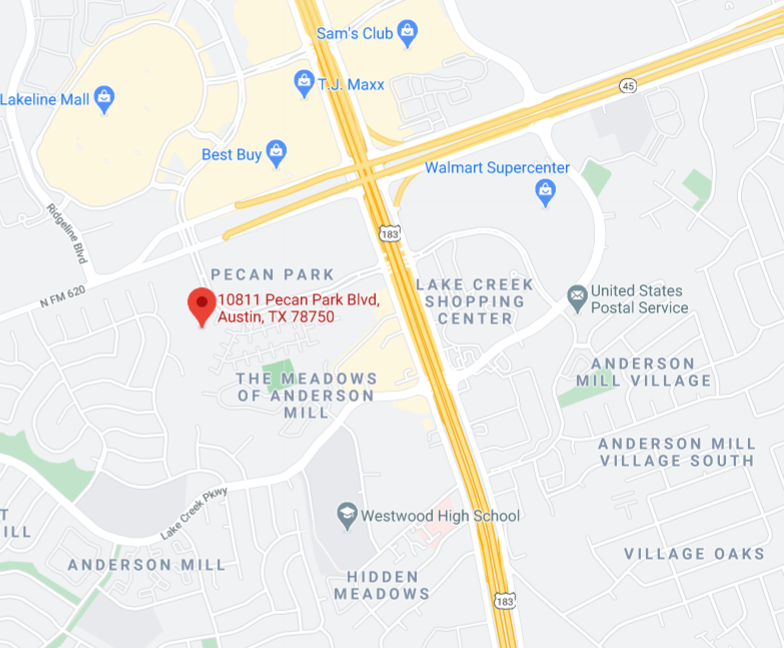In their ongoing attempt to inflict bumville on as much of Austin as possible, today the Austin City Council is scheduled to vote on buying a Williamson County hotel to use as a homeless shelter.
The Williamson County Commissioners Court has asked the Austin City Council to delay a decision for six months on whether to buy a hotel to house homeless people. The hotel, the Candlewood Suites near Texas 45 and U.S. 183, is in part of Austin in Williamson County.
Commissioners said Tuesday they did not learn about the city’s possible $9.5 million purchase until recently, and have not had time to assess the effects of the purchase.
“I am asking the city of Austin to communicate with stakeholders,” said Commissioner Cynthia Long. The hotel is in her district.
“As of last Friday, the city of Austin has not reached out to any government that might be impacted — not Williamson County, not Round Rock ISD, not Bluebonnet Trails (the local mental health authority), not Williamson County and Cities Health District,” Long said.
The Austin City Council postponed a decision on whether to buy the hotel at 10811 Pecan Park Boulevard from Jan. 27 to Wednesday at the request of Council Member Mackenzie Kelly, who represents the district where the hotel is located.
For those unfamiliar with Austin geography, that’s way out in suburbia near the intersection of 183 and 620:

Kelly is hosting a town hall meeting about the hotel from 6:30 to 7:30 p.m. on Wednesday at [zoom link].
Austin officials notified Long about the hotel on Sunday, said Andy Hogue, a spokesman for Kelly, on Tuesday. Hogue declined further comment.
Kelly, who was elected in November, campaigned heavily on a platform that many of the city’s policies regarding homelessness were not beneficial.
On Sunday, residents of the Pecan Park and Anderson Mill neighborhoods held a protest about the plans for the hotel.
Hotel owners and residents who own property near Candlewood Suites told commissioners on Tuesday that homeless people who camp in the area already were causing problems.
“If the city buys Candlewood as a homeless shelter it would just zap our business,” said Marie Chaudhari, one of the owners of the Hampton Inn that shares a driveway with Candlewood Suites.
“Ever since homeless camping was allowed on the streets,” Chaudhari said, “crime has increased so much we had to hire a security guard.”
More:
Candlewood Suites is located in the Williamson County portion of NW Austin. The city wants to buy it and transform the property into a homeless shelter and resource center.
Tuesday, members of the Williamson County Commissioners Court made a formal request for the city to hold off for 180 days. It’s because they learned about this project a few days ago.
The motion to hit the brakes was made by Commissioner Cynthia Long. “My hope is that the city of Austin will hear what we said and it’s an ask to work with your neighbors,” said Cynthia Long, Williamson County Commissioner for precinct 2
Residence and business owners near the hotel say they were also blindsided by the city plan. “I think it would be important to have the public to have input to help out affect their neighborhoods,” said a woman who lives near the hotel.
Those who attended Tuesday’s meeting asked county officials to step in and help. “As Williamson County judge I’m deeply disappointed and that someone did not communicate with this court prior to the decisions they made,” said Williamson County Judge Bill Gravell.
The unanimous vote to make an official request for a 180-day pause was celebrated as a big step — but not a win.
“Yes finally, it should’ve been City of Austin‘s job to listen to its constituents but apparently at least, I’m so thankful for Williamson County to be present for us out here,” said Rupal Chaudhari, who works next to Candlewood Suites
The goal is to convince the city to do an economic impact study; similar to what the city requires private developers to do. Residents believe the study will show that property values will collapse and businesses will close.
The continuing lockdown has proven that Mayor Steve Adler and the Austin City Council really don’t seem to care how many local businesses close.
“Freda I think has about 50 employees we have about 20 at one hotel and the next hotel will have about 30 so that’s hundreds of jobs impacted just right there,” said Sanjay Chaudhari, the Hampton Inn & Suites General manager which is next door to Candlewood.
Williamson County commissioners questioned why the city chose a northwest Austin site for its homeless hotel idea after a similar plan for a South Austin site failed last year. They also want to know more about how the city will address transportation issues, security, as well as what type of social programs will be provided; and where the funding for that will come from.
“Actually it’s not weighing in on the proposal at all because quite frankly I don’t know enough about the proposal to be for or against it I’m simply asking and I think the commissioners’ court is asking to work with the county to work at the school district to work with the surrounding neighbors to talk about this,” said Long.
If the city ignores the county request, commissioners sent another message. They’re willing to explore all options in order to have their concerns addressed.
Hopefully that includes lawsuits.
The repeal of the camping ban has created homeless encampments under virtually ever overpass along 183. My amazing psychic power predict that the new homeless hotel will have absolutely no effect on those existing Adlervilles, but will only draw more transients (and crime) to north Austin.
It would be nice to think that the Austin City Council might listen to citizens for a change, but they seem hellbent on shoveling more money into the Homeless Industrial Complex.
